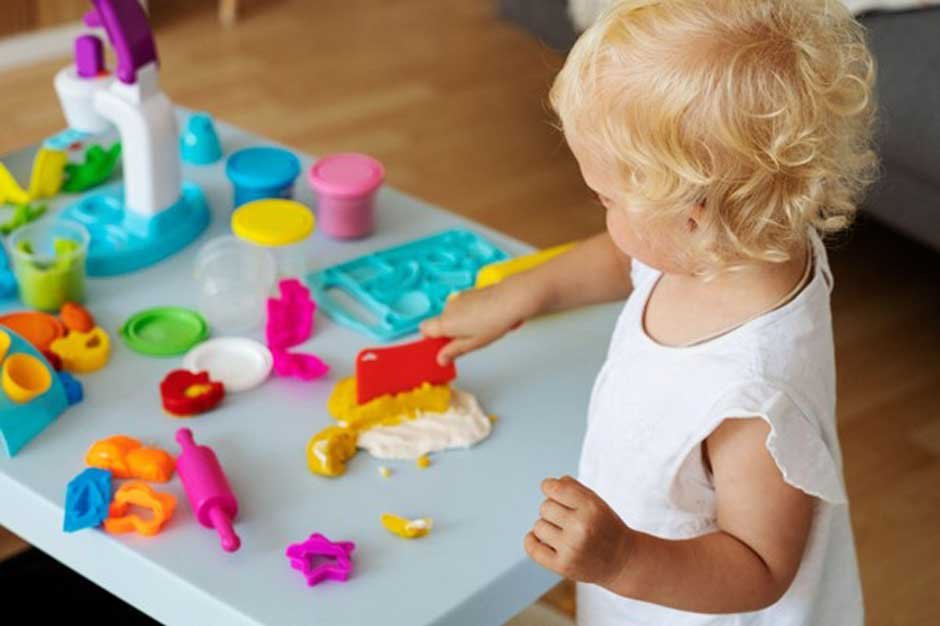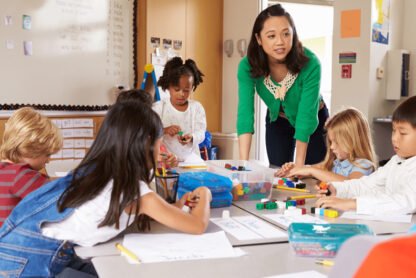From the birth of a child, their brains are ready to learn and develop through experiences. To play and learn, your child needs a stimulating atmosphere that offers a variety of activities. Plus, your child needs opportunities to practice and repeat the lessons they are learning.
Preschool is the first official educational experience for child and is also vital for their growth. Preschool in Torrance includes infant childcare, which is especially important since it sets the stage for later education. Here, you can explore the essential aspects of what your child learns at infant daycare, recognizing its profound impact on early childhood development.
Things Child Learns at Infant Daycare
1. Socialization Skills
– Peer Interaction
Infant daycare introduces children to their first social experiences outside the family. It provides a structured environment where they learn to interact with peers, fostering essential socialization skills. Through play and shared activities, children develop the ability to communicate, cooperate, and build relationships.
– Emotional Regulation
Being away from parents for the first time can be emotionally challenging for infants. Daycare helps them learn emotional regulation by providing a supportive environment where they experience various feelings and gradually develop coping mechanisms.
2. Cognitive Development
– Stimulating Environment
Infant daycares create environments rich in sensory experiences. Colorful toys, age-appropriate books, and engaging activities stimulate cognitive development. Infants learn to explore their surroundings, enhancing their curiosity and cognitive abilities.
– Language Development
Daily interactions with caregivers and exposure to language-rich environments contribute significantly to language development. Infants absorb language patterns, vocabulary, and communication skills, laying the groundwork for future literacy.
– Problem-Solving
Even at an early age, infants begin to encounter challenges. Daycare activities and interactions encourage problem-solving skills as they navigate age-appropriate puzzles, toys, and activities.
3. Motor Skills Development
– Gross Motor Skills
Structured play and activities in Montessori infant daycare promote the development of gross motor skills. Infants learn to crawl, stand, and eventually take their first steps through supervised play. Activities like tummy time and playing with soft toys contribute to muscle development.
– Fine Motor Skills
Simple activities like handling small objects, stacking blocks, and finger painting contribute to the development of fine motor skills. These activities enhance hand-eye coordination and prepare infants for more complex tasks as they grow.
4. Establishing Routine and Structure
– Predictability
Infant daycare introduces crucial elements of routine and predictability. Regular schedules for feeding, napping, and playtime give infants a sense of security. This structured environment enhances their comfort and creates an optimal setting for early learning experiences.
– Transitions
Learning the skill of transitioning between activities is a fundamental aspect of infant development. In daycare, children seamlessly move from playtime to mealtime to naptime, fostering adaptability and a consistent sense of routine. These experiences lay the foundation for the development of organizational skills and contribute to a smoother transition into more structured learning environments as children grow.
5. Independence and Self-help Skills
– Feeding and Self-feeding
Daycare encourages independence in feeding, even in the early stages. From bottle-feeding to transitioning to solid foods, infants learn to hold their bottles and eventually use utensils, promoting self-help skills.
– Personal Hygiene
As infants become more mobile, daycare introduces basic personal hygiene routines. Learning to wash hands, albeit with assistance, sets the foundation for future self-care habits.
6. Emotional and Social Well-being
– Attachment and Security
Infant daycare plays a pivotal role in establishing healthy attachments with caregivers. Through consistent and responsive care, a sense of security is fostered, positively impacting emotional well-being.
– Sharing and Empathy
Interactions with caregivers and peers in daycare contribute to the early development of sharing and empathy. Engaging in simple activities involving taking turns or helping one another builds these essential social skills, laying the groundwork for positive social interactions.
Conclusion
Infant daycare is far more than a safe space for parents to leave their children; it is a vibrant environment where early learning takes center stage. The skills and experiences gained during this foundational period set the stage for future academic success and social development.
Recognizing the multifaceted role of infant daycare underscores the necessity of investing in quality education in early childhood, ensuring that children embark on their educational journeys with a strong foundation for lifelong learning.









